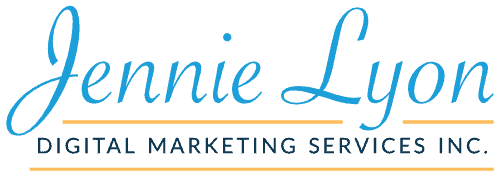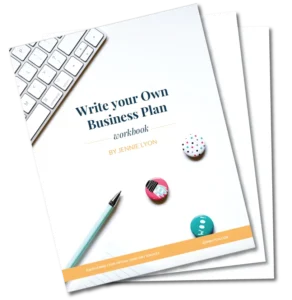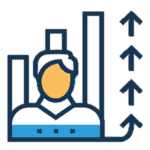The Best U.S. Stimulus Package Options

Is your small business ready for some financial help? Well, good news! Stimulus help is on its way!
COVID-19 has disrupted almost every aspect of American life, and I’m not just talking about stay-at-home guidelines. Individuals, organizations, and businesses have unexpectedly run into the economic equivalent of a brick wall. Financial hard times are tough enough to deal with when everything else is calm. But during a pandemic, pulling yourself out of that hole and protecting your brand can feel impossible.
Thankfully at the end of March, the Federal government passed three landmark pieces of legislation to help Americans weather the crisis. This included $2.3 trillion of economic stimulus called the CARES Act. This legislation far eclipses the stimulus of the 2008 financial crisis. In fact, it is the most substantial economic stimulus in U.S history.
Most individuals will receive $1,200 to help with their personal finances. Small and medium-sized businesses struggling due to mandatory closures or reduced sales also had options. These mostly come in the form of low-interest loans, tax deferrals, and many other methods of aid. The aim is to help small businesses get through the next few weeks and months until the country fully reopens again.
Here is what you need to know as a small business owner:
Disaster Loans
Let’s get the bad news out of the way first. Emergency disaster lending program for small businesses isn’t likely going to be helpful to you for the time being.
Gaining new importance with the rise of COVID-19, the Economic Injury Disaster Loan program, is a long-standing Small Business Administration program. Given the program in the CARES act, $50 billion was meant to offer loans with interest rates of 3.75% for businesses and 2.75% for nonprofits. That money was burned through very quickly as a backlog of applications started to build up, unfortunately.
More recently, officials put a $150,000 limit on any loans coming from the program. They are also only considering applications from agricultural interests. The state of affairs could change if more stimulus passes. The disaster loan program currently isn’t a viable financial relief option for the vast majority of small businesses.
But don’t worry, because there are many more programs to help!
[TWEET “Need some assistance keeping your business going during COVID-19? These U.S. stimulus packages can help!”]
Paycheck Protection Program (PPP)
A significant component of the CARES Act was the Paycheck Protection Program. Specifically tailored to keep the employees of small businesses employed throughout the crisis, these loans (up to $10 million) is an important aspect of the program. Backed by the Small Business Association, all small businesses are eligible for the program. This includes sole proprietorships, independent contractors, and self-employed individuals.
The PPP loans have a maturity rate of two years and an interest rate of 1%. There’s no need to make any payments for the first six months after you receive your loan. There are no fees, collateral, or personal guarantees required, also. You must spend at least 75% of the loan on paying your employees and providing them with their benefits. You can spend the remaining 25% on rent, mortgage interest payments, and utilities.
Loan forgiveness if all employees remain on the payroll for eight weeks is an important aspect of this program. This essentially turns the loan into a non-taxable grant. Check with your accountant to confirm that you’ve taken the necessary steps to ensure your loan will be forgiven.
The program has proved very popular with small businesses. In fact, it was so popular that it quickly ran out of money. Thankfully, the federal government refilled the coffers, and there looks to be about 40% left of this round of funding. If the program runs out of money again, the government will likely put more into the program.
Here is some more information about the program directly from the Small Business Administration.
Main Street Lending Program
The Main Street Lending Program has yet to take effect as of the writing of this blog. It can still offer a tremendous amount of relief to small and medium-sized business owners.
Main Street Lending Program has a projected budget of $600 million. They will offer loans at a minimum of $500,000 and a maximum of $140 million. Unlike the PPP or disaster loan programs, there will be no debt forgiveness mechanisms in place for this program. However, the interest rates for the loans will be considerably lower than most loans, between 2.5% and 4%. The repayment term for these loans is four years.
The details of the program are still in flux. So we recommend setting up a Google alert or checking the news daily to keep updated.
Income Tax and Payroll Tax Deferrals
To remove some of the financial burdens on small businesses temporarily, two tax measures have been put into place by the IRS.
First, the IRS has extended personal and corporate tax returns due dates until mid-July. If you have final payment due, that money can remain in your account until that date, potentially providing you with a bit more capital to get you through this rough patch until your small business can reopen again.
Second, you have the option to defer your federal payroll taxes until 2021. This should give small businesses a bit more breathing room until the full amount is due next year.
[TWEET “If you need a loan to keep your business going during this crisis, these government programs might be the edge you need!”]
Tax Credits
Get some financial relief through tax credits if you haven’t been approved for a PPP loan. The employee retention tax credit can be taken quarterly throughout 2020, amounting to a max of $5,000 per employee. You might want to talk with your accountant to learn more about this tax credit, but it could provide your small business with significant relief.
While these programs may prove helpful in keeping your head above water while things get back to normal, your small business will likely need to make some changes to thrive during and after the crisis. Smart entrepreneurs are using this time to pivot their businesses online, providing virtual services that they used to provide in-person. They also are exploring digital means of marketing, including creating new content, optimizing their social media, building online courses and webinars, and more! To help, I’ve created this free workflow with tips, tricks, and suggestions that I’ve used to help my online business thrive for the last 20 years! Feel free to download it today!

Struggling with how to pivot your business online? Contact me ASAP, and we can start building a digital-first strategy that will not only keep your small business going today, but also help you thrive in the years to come!
























